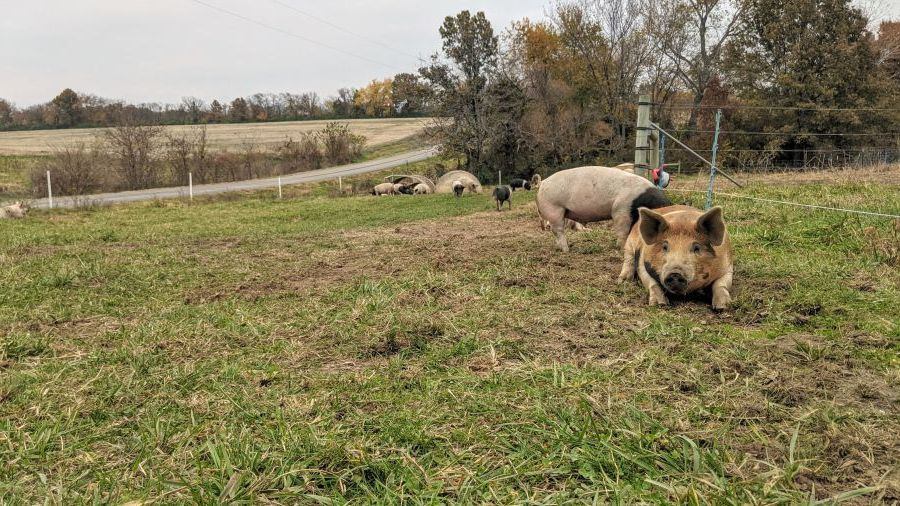The Benefits of Livestock Guardian Dogs (LGDs) on a Pasture-Based Poultry Farm
posted on
June 26, 2024

Our livestock guardian dogs, also known as LGDs, consistently steal the show during farm events here at David's Pasture. In regenerative agriculture, where harmony between nature and farming practices is most important, livestock guardian dogs play an essential role, particularly when raising poultry. Not only do these hard-working canines protect our flocks, they also contribute significantly to wildlife conservation and the efficiency of our farm. Understanding the purpose and benefits of LGDs reveals why they are worth their weight in gold.
Purpose of Livestock Guardian Dogs
Livestock guardian dogs are bred and trained specifically to protect livestock and poultry from predators. Common breeds of LGD include Maremma, Pyrenees, Anatolian, and Polish Tatra. On a pasture-based poultry farm like ours, where poultry are raised outside, the LGD's primary role is to protect chickens, turkeys, and other fowl from common predators such as foxes, coyotes, raccoons, and birds of prey. The presence of LGDs creates a living barrier between the poultry and wildlife, significantly reducing losses and stress among the birds.

Benefits of Using Livestock Guardian Dogs
1. Reliable Security
The primary benefit of using LGDs on our farm is the security they provide for our poultry. These dogs patrol our farm regularly, simply deterring most predators with their presence. But their acute senses and instinctive protective behavior ensure that they can detect and respond to threats quickly, often before the predators get close to the flock.
2. Reduction in Losses
Since adding LGDs to our farm over ten years ago, the number of predator attacks we've experienced has decreased significantly. This translates to fewer losses of poultry, which is a direct economic benefit for both us and our customers. The cost of raising and maintaining LGDs is far outweighed by the savings from reduced predation.
3. Promoting Natural Behaviors
In a regenerative farming system, our goal is to mimic creation as closely as possible. LGDs allow poultry to safely exhibit their God-given behaviors by providing them the freedom to range and forage without the constant threat of predators. This natural behavior is essential for the health of our birds and land.
4. Eco-friendly Pest Control
Using LGDs is a safe, humane, and eco-friendly alternative to other forms of pest control, such as traps or poisons, which can have poor effects on the environment and wildlife. LGDs offer a (mostly) non-lethal, sustainable method of managing predators that aligns with our principle of working with creation instead of against it.
5. Improved Farm Efficiency
By reducing the need for us to constantly keep an eye on our poultry and intervene (e.g. camping in the field to catch predators), LGDs increase the efficiency of our farm- and save us a lot of sleepless nights! We farmers can focus on other important tasks, knowing that our flocks are well-protected. This has been a crucial part of maintaining a smooth-running farm over the last 13 years.

Aaand, they make stinkin' cute puppies! This is a livestock guardian puppy that we "dog sat" for another farm. We've had several of our own litters of pups throughout the years, and they never fail to get us wrapped around their paws.
Conclusion
Incorporating livestock guardian dogs into our farm has resulted in many benefits that align with our regenerative and humane farming practices. These dogs provide a reliable and natural method of predator control, promote the well-being and natural behavior of our poultry, and have boosted our overall farm efficiency. I hope that after learning more about them, you can now appreciate these furry farm hands as much we do.
In good eating,
Your farmer,
Remi Kesten



